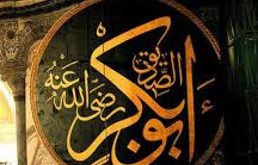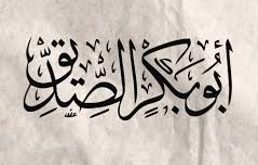 Du‘aa for the Guidance of Quraish:
Du‘aa for the Guidance of Quraish:
Hazrat ‘Urwah bin Zubair (rahimahullah) narrates that a woman of the Banu Najjaar clan (radhiyallahu ‘anha) said, “My house was one of the highest houses around the Musjid (i.e. Musjidun Nabawi (sallallahu ‘alaihi wasallam). Hadhrat Bilaal (radhiyallahu ‘anhu) would call out the azaan of Fajr from the top of my house. He would arrive at the time of Sehri and sit on the roof, looking at the horizon and waiting for the time of Fajr to set in. When he would see the time set in, he would stretch (due to sitting for a long time, waiting to see the time of Fajr set in) and make the following du‘aa: ‘O Allah, I praise You (for allowing me to call out the azaan) and I seek Your assistance and beseech You to guide the Quraish (i.e. the family of Rasulullah (sallallahu 'alaihi wasallam) who had not yet embraced Islam) to Islam so that they may uphold and establish Your Deen (in the world).’” The woman further said, “He would then call out the azaan. I take a qasm by the name of Allah Ta‘ala, I cannot remember him leaving out this du‘aa for even a single day (i.e. his du‘aa for the Quraish before calling out the azaan).”
(Abu Dawood #519)
Footsteps in Jannah:
Hazrat Abu Hurairah (radhiyallahu ‘anhu) narrates that Nabi (sallallahu ‘alaihi wasallam) once asked Hazrat Bilaal (radhiyallahu ‘anhu) at the time of fajr salaah, “O Bilaal (radhiyallahu ‘anhu)! After embracing Islam, which action do you hope will greatly benefit you from the actions you carry out? Verily I heard your footsteps before me in Jannah (in a dream) last night.” Hazrat Bilaal (radhiyallahu ‘anhu) replied, “The action I carry out, which I hope will greatly benefit me, is that whenever I make wudhu, at any time of the day or night, I perform salaah after making wudhu (I perform the salaah of Tahiyyatul Wudhu).”
(Muslim #2458)
The honor awarded to Hazrat Bilaal (radhiyallahu ‘anhu) on account of this action (tahiyyatul wudhu) was the honor of walking before Nabi (sallallahu ‘alaihi wasallam) in Jannah, as a khaadim (servant) walks in front of his master in order to serve him.
Mu’aakhaat (the Bond of Brotherhood)
The Sahaabah (radhiyallahu ‘anhum) who made hijrah (migrated) from Makkah Mukarramah to Madinah Munawwarah would be paired with the Sahaabah of the Ansaar (radhiyallahu ‘anhum). The Sahaabah of the Ansaar (radhiyallahu ‘anhum) would then assist and aid the Sahaabah of the Muhaajireen (radhiyallahu ‘anhu) with whom they had been paired. This special bond shared by these Sahaabah (radhiyallahu ‘anhum) was known as “Mu’aakhaat” (the bond of brotherhood).
There are three views regarding who Hazrat Bilaal (radhiyallahu ‘anhu)’s partner of Mu’aakhaat was after migrating to Madinah Munawwarah.
‘Allaamah Qurtubi (rahimahullah) has mentioned two views. The first is that Hazrat Bilaal (radhiyallahu ‘anhu) had been paired with ‘Ubaidah bin Haarith bin Muttalib (radhiyallahu ‘anhu) and the second is that he was paired with Abu Ruwaihah Al-Khath‘ami (radhiyallahu ‘anhu).
(Istee‘aab 1/258)
Haafiz ibnul Hajar ‘Asqalaani (rahimahullah) has mentioned that Hazrat Bilaal (radhiyallahu ‘anhu) had been paired with Hazrat Abu ‘Ubaidah bin Jarraah (radhiyallahu ‘anhu).
(Isaabah 1/455)
First of the Abyssinians to Accept Islam
Hazrat Anas (radhiyallahu ‘anhu) narrates that Nabi (sallallahu ‘alaihi wasallam) said, “Those who preceded (in Islam) are four; I was the first from the Arabs through which Islam became known, Hazrat Salmaan (radhiyallahu ‘anhu) has preceded the Persians in embracing Islam, Hazrat Bilaal (radhiyallahu ‘anhu) has preceded the Abyssinians in embracing Islam and Hazrat Suhaib (radhiyallahu ‘anhu) has preceded the Romans in embracing Islam.”
(Siyar A‘laam Nubalaa’ 3/217)
Bearing the Spear on the Day of Eid
The King of Abyssinia (Najaashi (rahimahullah)) once sent three spears to Nabi (sallallahu ‘alaihi wasallam) as a gift. When Nabi (sallallahu ‘alaihi wasallam) received the spears, he gave one to Hazrat ‘Ali (radhiyallahu ‘anhu), one to Hazrat ‘Umar (radhiyallahu ‘anhu) and kept the one which remained. On the occasions of Eid, Hazrat Bilaal (radhiyallahu ‘anhu) would walk before Nabi (sallallahu ‘alaihi wasallam), bearing this spear, until they reached the Eid-Gah. On arriving at the Eid-Gah, Hazrat Bilaal (radhiyallahu ‘anhu) would insert the spear into the ground before Nabi (sallallahu ‘alaihi wasallam). Nabi (sallallahu ‘alaihi wasallam) would then perform the Eid salaah with the spear as his sutrah.
(Siyar A‘laam Nubalaa’ 3/221)
Source: Whatisislam.co.za
 Ihyaaud Deen An Effort to Revive Deen in Totality
Ihyaaud Deen An Effort to Revive Deen in Totality


